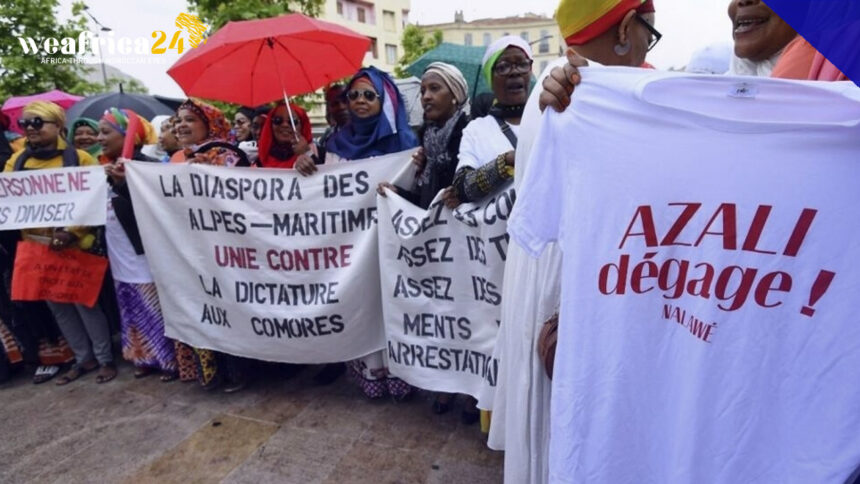In the lead-up to the presidential elections scheduled for January 14th, the Comorian diaspora, numbering several hundred thousand individuals, finds itself unable to participate in the voting process—a situation lamented by prominent figures within the diaspora who argue that it casts doubt on the credibility of the upcoming elections.
According to the Comorian Ministry of Foreign Affairs, up to 600,000 Comorians reside in France, particularly in Marseille, often referred to as the “fifth island.” It is noteworthy that the archipelago itself has a population of 820,000. The exclusion of diaspora members, according to Said Larifou, a lawyer and former presidential candidate currently in exile in France since 2019, compromises the democratic nature of the electoral process:
“If a significant portion of the population is excluded from this process, then it is not democratic. It is a denial of democracy. That’s the first point. The second point is that this process is not democratic even for those on the ground in Comoros, as Azali holds all the reins of power, and the process is exclusively under Azali’s control. There will be no change in Comoros as long as Azali is in charge,” he asserts.
In September of the previous year, Franco-Comorian lawyer Maliza Said Soilihi filed a petition with the Supreme Court of Comoros seeking the implementation of voting rights for the diaspora. However, the request was promptly rejected.
“When one demands the application of fundamental rights, the court either declares itself incompetent or deems the request inadmissible,” laments the jurist. “The entire legislative framework exists, but it is still not enforced. All successive powers fear the influence and power that the diaspora could wield. We simply ask for the respect and guarantee of our rights.”
Houmed Msaidié, Minister of Agriculture, government spokesperson, and campaign director for Azali Assoumani, counters this by highlighting that the current Comorian constitution does not include provisions for diaspora voting in presidential elections. He points out that Article 66 of the Constitution does, however, allow for diaspora representation in the National Assembly.
Msaidié notes, “It is not forbidden that one day it will happen if things clarify on both sides. But for now, technically and politically, it is not imperative. And it has nothing to do with the political stance of the diaspora, which reflects the ongoing debate here in Comoros: a part of this diaspora supports the government, while another supports the opposition.”







